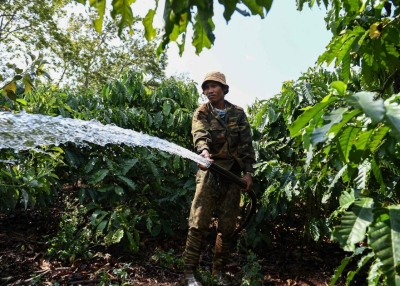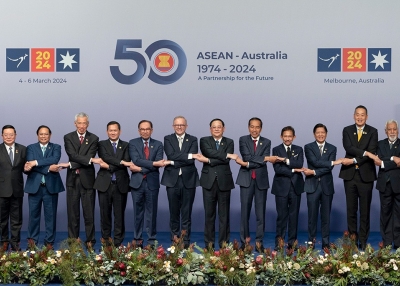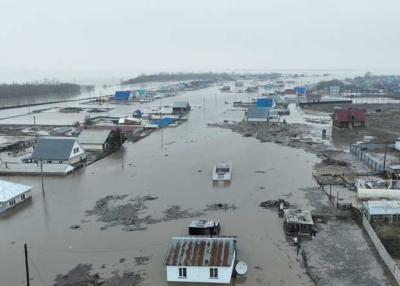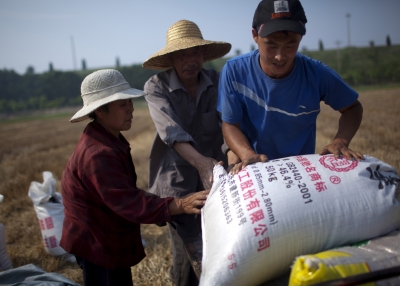Kazakhstan’s Emergence as a Middle Power: Implications for Western Relations
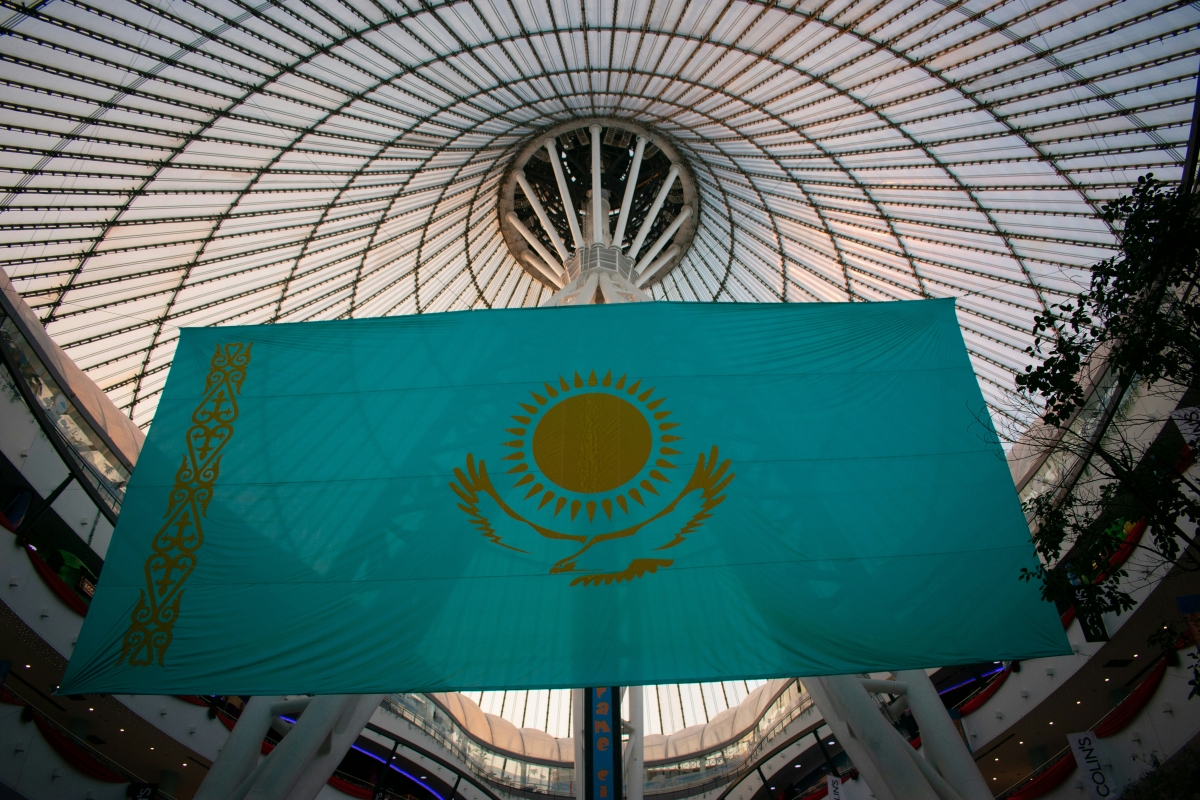
By Asia Society Policy Institute Research Associate, Genevieve Donnellon-May
A recent report by the German analytical centre, ‘Foundation for Science and Politics,’ has categorised Kazakhstan, Central Asia’s largest country and one of its most important, as a ‘middle power’ – a nation with considerable influence in the global political and economic arena, yet less so than a major global power.
This is a stark contrast to a little over 30 years ago when the country gained independence from the Soviet Union in 1991 and played an unassuming role in international relations.
Kazakhstan’s ascent reflects how rapidly global politics have evolved over the past three decades. A culmination of recent geopolitical and geoeconomic events, particularly the rise of China, which borders Kazakhstan, and the invasion of Ukraine by Russia, another of Kazakhstan’s neighbours, have increased the country’s prominence on the world stage.
In addition to the wider geopolitical context, there are three main reasons why Kazakhstan’s star is rising.
Firstly, Kazakhstan is now a middle power and an international player. Its “multi-vector foreign policy”, as described by the country’s President Kassym-Jomart Tokayev, has enabled it to manage and maintain relations with major powers, including China, Russia, the European Union, and the United States (U.S.). This has helped positioned Kazakhstan as a key bridge between the East and the West.
In terms of economic policies, Kazakhstan has adopted an open stance, attracting investments from all sides. Notably, the EU has become Kazakhstan’s largest foreign investor, signifying which way the wind is blowing. In addition to engaging in trade with both its neighbours and the West, Kazakhstan is also investing in other countries.
Interest from the West in Kazakhstan as an economic and strategic partner is reinforced by recent visits political leaders from Europe and the U.S. as well as the U.S. hosting of the C5+1 forum last year on the side of the United Nations General Assembly.
Kazakhstan has become a major transit route due in part to its participation in China’s Belt and Road Initiative, the EU’s Global Gateway, and the Trans-Caspian International Transport Route (TITR). Recent estimates suggest that over 80 percent of goods from China and Central Asia currently exported to Europe pass through Kazakhstan, making it a key trade route.
The country’s importance for freight and container transportation is underscored by recent trends. During the first ten months of 2023, 22.5 million tonnes of freight were transported through Kazakhstan, a 19% increase in volume. Container transportation grew by 15% over the same period.
The country is expected to continue to play a key role in transportation with the transit traffic via Kazakhstan projected to rise to 35 million tons by 2029.
Diplomatically, Kazakhstan’s willingness to manage relations with all major powers led to its role in mediating international conflicts, including the Astana Process on Syria, which held its 21st round of talks in January.
In addition, the country plans to deploy as many as 430 peacekeepers to participate in various United Nations (UN) missions, including the UN Disengagement Observer Force in the Golan Heights, the UN Mission in South Sudan, and the UN Interim Security Force for Abyei in Sudan.
Since independence, Kazakhstan has allocated $600 million for humanitarian and development assistance via the Kazakhstan Agency of International Development (KazAID). In 2022 alone, KazAID contributed over $36 million in development assistance.
In a further sign of Kazakhstan’s rising place on the global stage and interest in power projection, the country will chair several leading international organisations in 2024, including the Shanghai Cooperation Organisation, the Conference on Interaction and Confidence-Building Measures in Asia, the Organisation of Turkic States, the Islamic Food Security Organisation, and the International Fund for Saving the Aral Sea. It will also host the Astana International Forum in June to facilitate collaborative solutions to some of the most critical challenges facing humanity today.
Furthermore, despite its close trade and economic ties with Russia, Kazakhstan has not supported its neighbour’s war with Ukraine, and has been working with Western nations to prevent the circumvention of sanctions through its territory.
Secondly, Kazakhstan is becoming increasingly useful to the West in terms of its supply of rare earth metals and minerals. The Central Asian country produces 19 types of essential raw materials that are on the European Union’s list of critical raw materials. It is also among the world’s top 10 copper-producing countries.
Rare metals are considered essential for the transition to green energy, the development of digital technologies, defence, aerospace, and other high-tech areas. Currently, the EU relies on China to meet 98% of its needs of supply and refining of rare earths. With Western countries highly dependent on these minerals for their green, technological, and energy transitions while trying to reduce reliance on China, they have a vested interest in securing additional sources of rare earths. To this end, Kazakhstan could play a role here by supplying the European Union and others interested in rare metals.
Thirdly, the energy sector presents a significant opportunity for Kazakhstan in the context of the war in Ukraine and the deteriorating relations between Russia and the West. European countries are seeking alternatives to Russian oil and gas and Kazakhstan can fill the gap. The EU is already a major market for Kazakhstan oil and gas, with the Central Asian nation’s output accounting for the majority of its US$32 billion total exports to the bloc in 2022. Last year, Kazakhstan shipped 500,000 metric tonnes of crude to Germany, sales that began after Berlin decided to stop buying Russian oil. According to the country’s leadership, Astana is ready to increase supplies and make them long-term. In the future, Kazakhstan could even assume a role akin to Gulf countries in the oil industry.
Kazakhstan’s rise as an effective middle power has implications for the West too. The inclusion of the Central Asian country as a middle power is a signal to the West to engage with countries that were previously regarded as peripheral in international politics.
At the same time, Kazakhstan’s growing role in the economic and diplomatic spheres offers potential mutual benefits. This is particularly the case for energy security, geopolitical influence, and economic growth. Engaging with Kazakhstan in the energy sector can reduce dependence on other countries and regions, which are potentially less reliable.
Geopolitically, also, engagement with Kazakhstan, which has been undertaking significant political and economic reforms in the post-Soviet space, can increase European and American influence in Central Asia, where Western presence has been limited so far. This can provide Western nations with a strategic partner in an important part of the world.
Amid an increasingly complex and fractured geopolitical environment, it is clear that the West should take advantage of the opportunities presented by Kazakhstan’s growing influence.
